Results
-
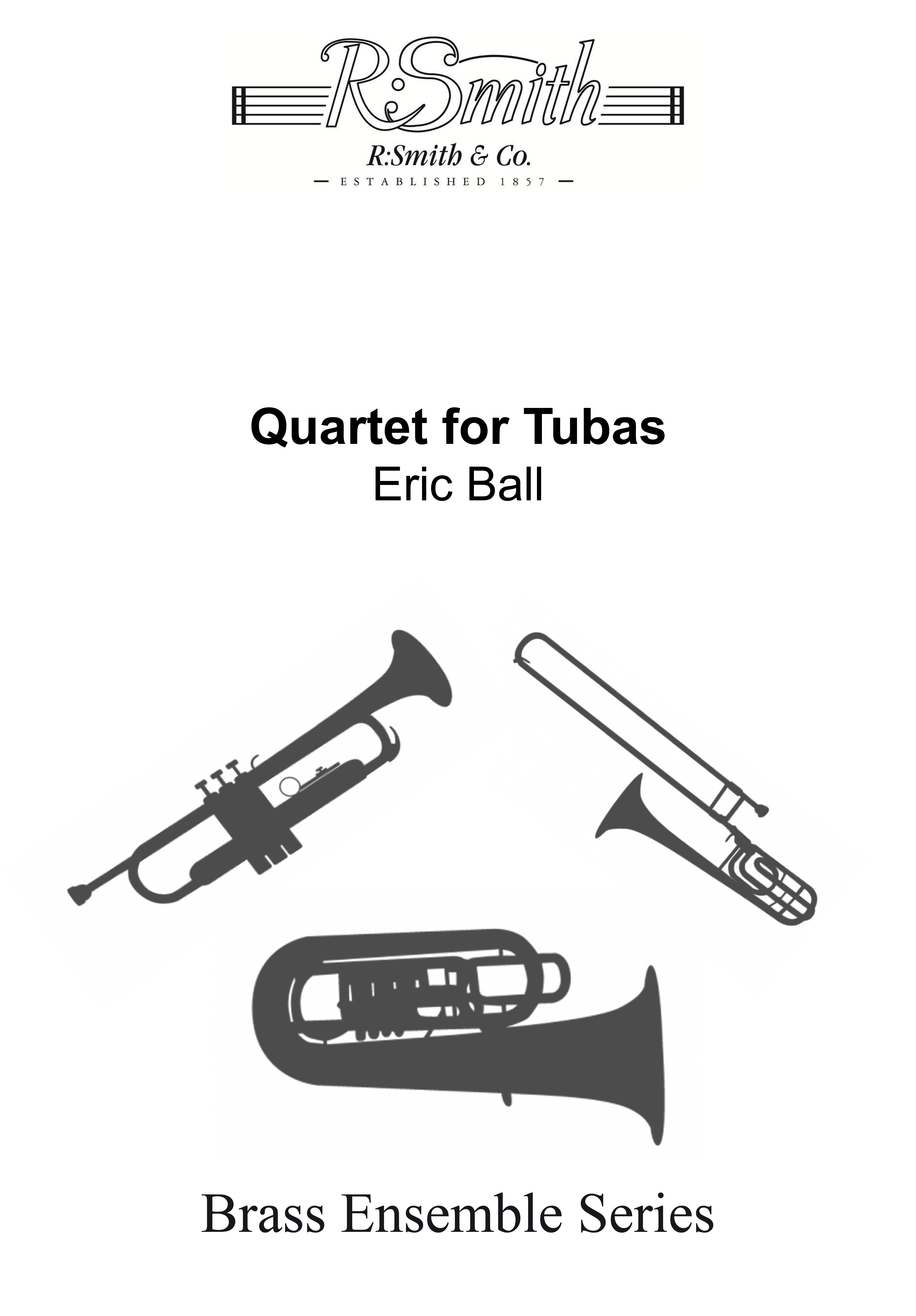 £9.95
£9.95Quartet for Tubas (Tuba Quartet - Score and Parts)
Written for 2 Eb Basses and 2 Bb Basses
Estimated dispatch 7-14 working days
-
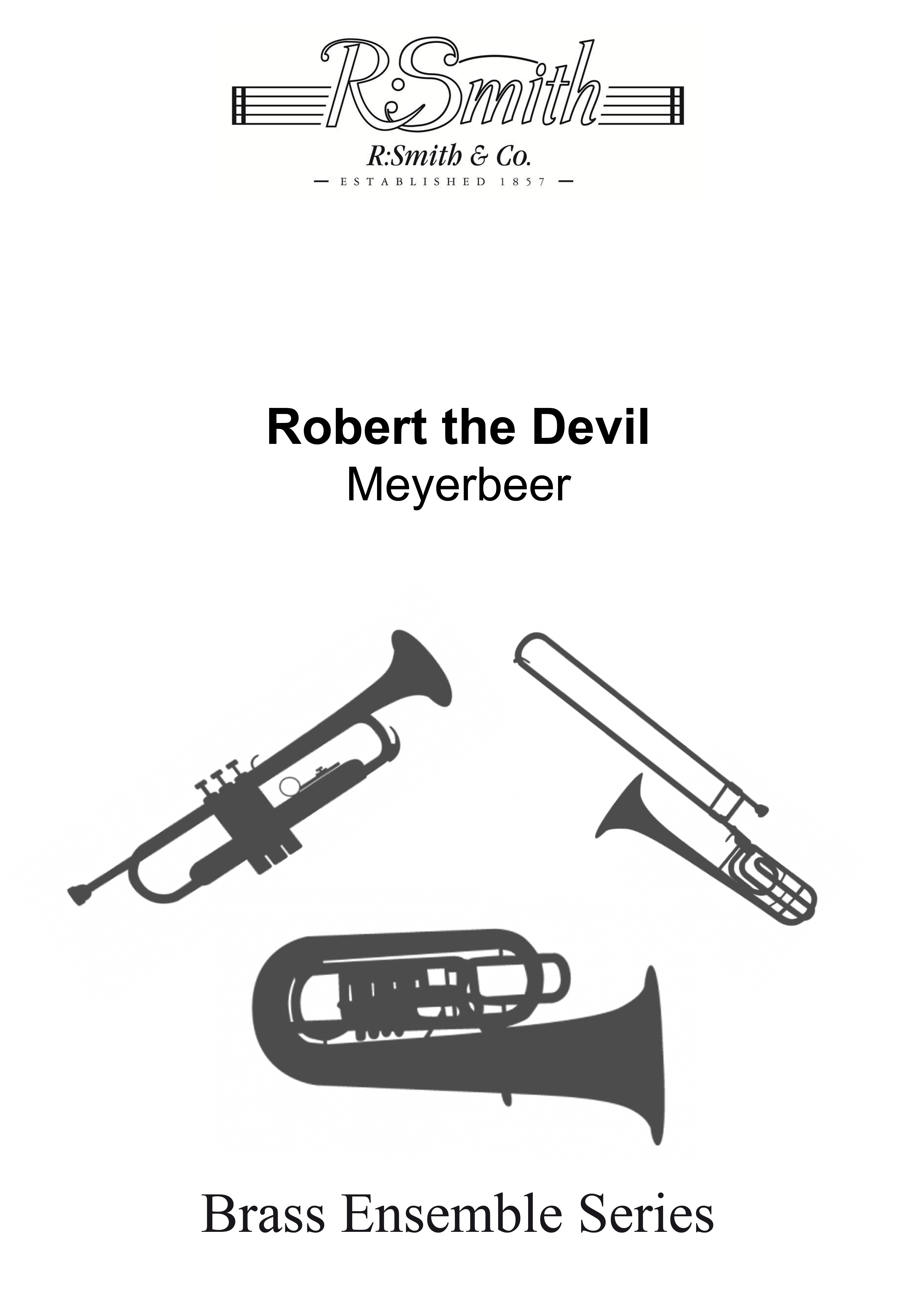 £5.95
£5.95Roberto Il Diavolo (Brass Quartet - Score and Parts)
Written for 2 Cornets, Eb Horn and Euphonium TC.
Estimated dispatch 7-14 working days
-
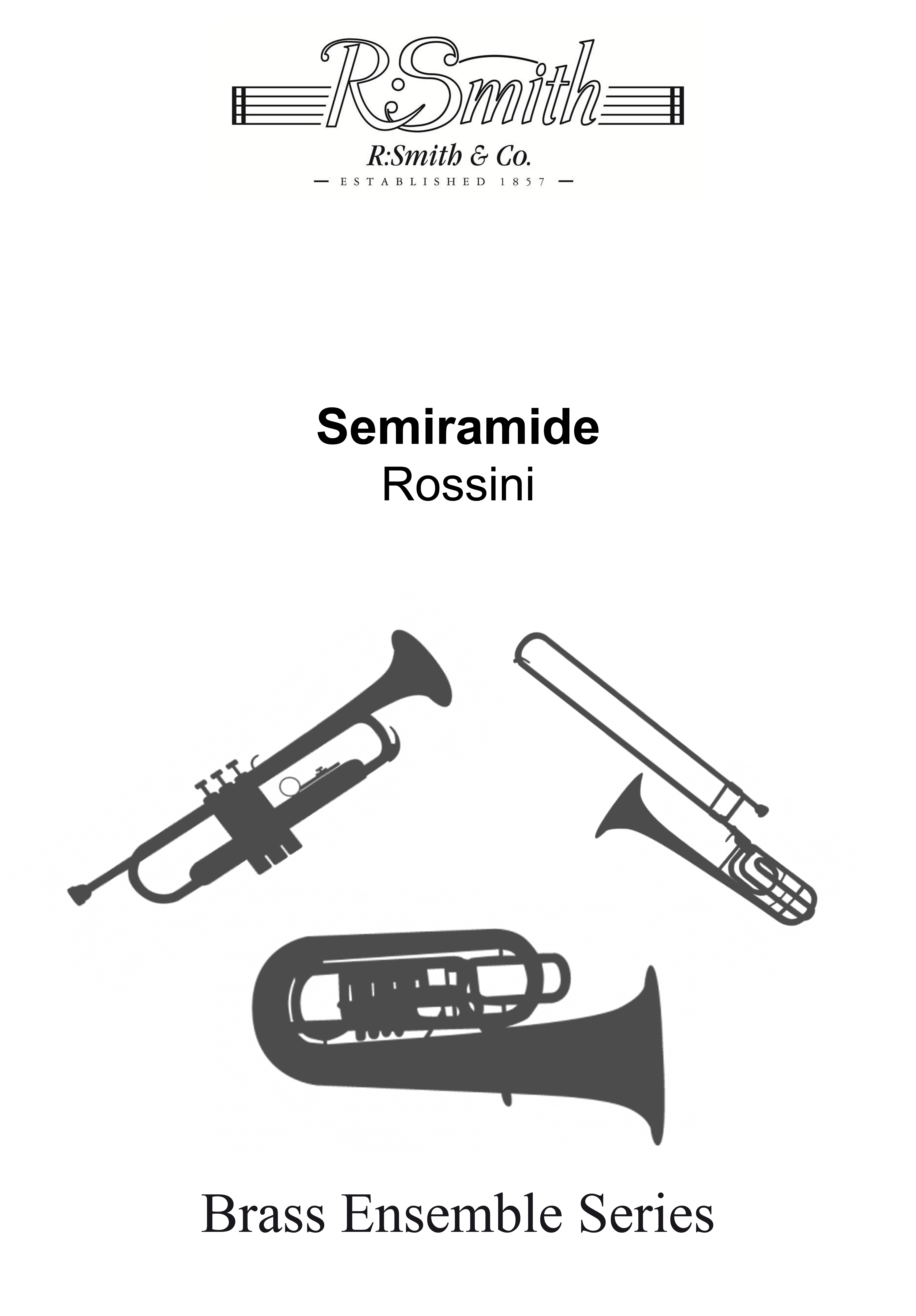 £5.95
£5.95Semiramide (Brass Quartet)
Written for 2 Cornets, Eb Horn and Euphonium TC.
Estimated dispatch 7-14 working days
-
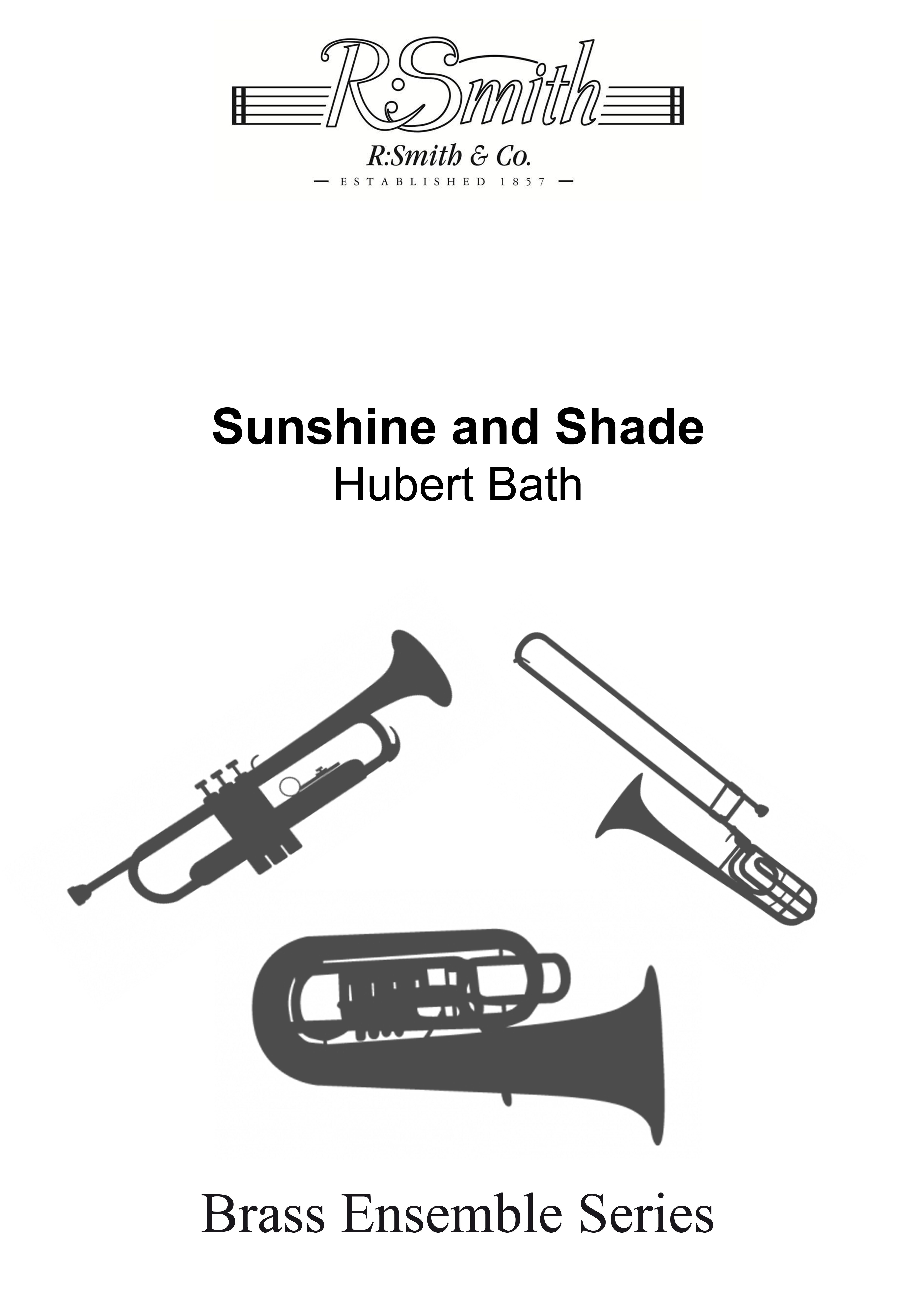 £5.95
£5.95Sunshine and Shade (Brass Quartet - Score and Parts)
Written for 2 Cornets, Eb Horn and Euphonium TC.
Estimated dispatch 7-14 working days
-
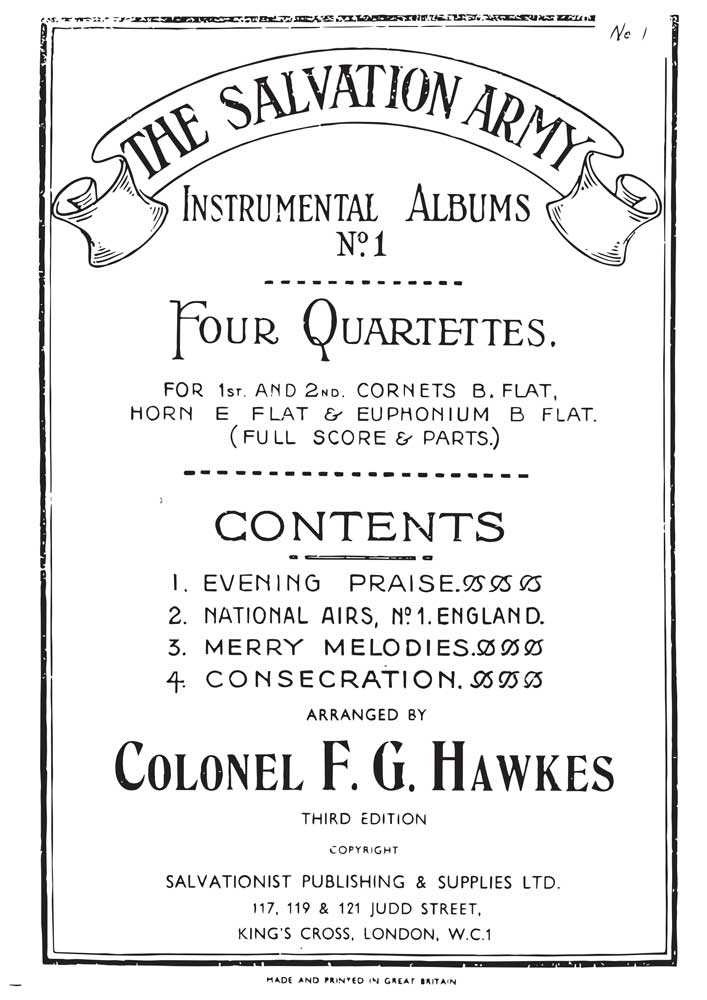 £14.95
£14.95Instrumental Album No.1 - Four Quartettes
Includes: Evening Praise; National Airs, No.1 - England; Merry Melodies; ConsecrationInstrumentation: 2 Cornets, Eb Horn & Euphonium (Bb)
Estimated dispatch 7-14 working days
-
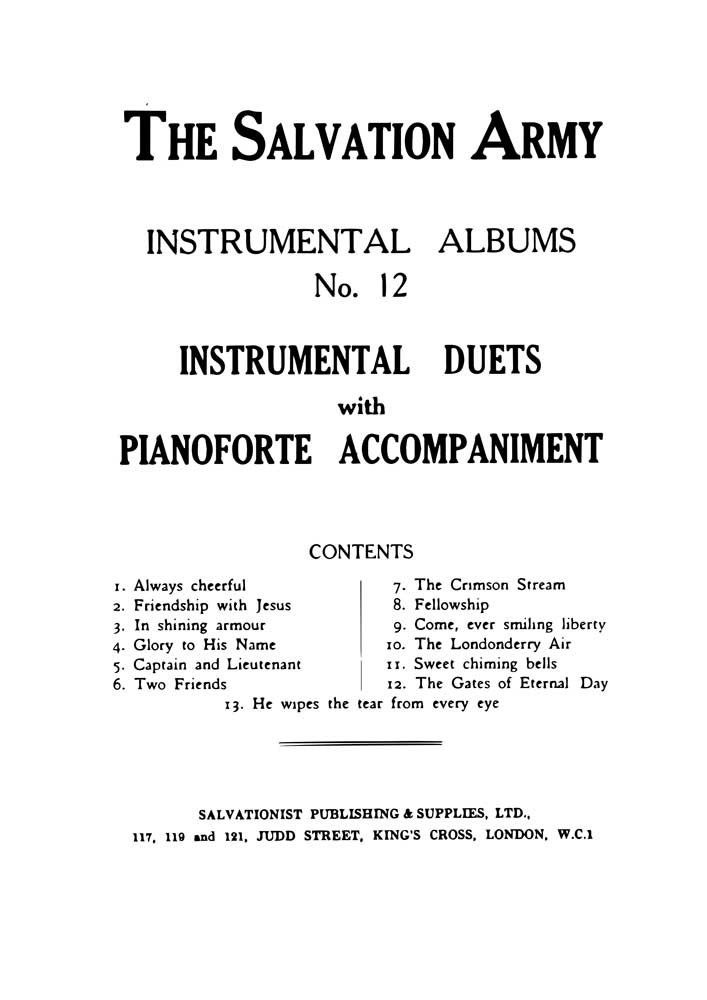 £14.95
£14.95Instrumental Album No.12 - Instrumental Duets
Includes: Always cheerful; Friendship with Jesus; In shining armour; Glory to his name; Captain and Lieutenant; Two Friends; The Crimson Stream; Fellowship; Come, ever smiling liverty; The Londonderry Air; Sweet chimings bells; The gates of eternal day; He wipes the tear from every eyeInstrumentation: Bb & Eb Duets with Piano Accompaniment
Estimated dispatch 7-14 working days
-
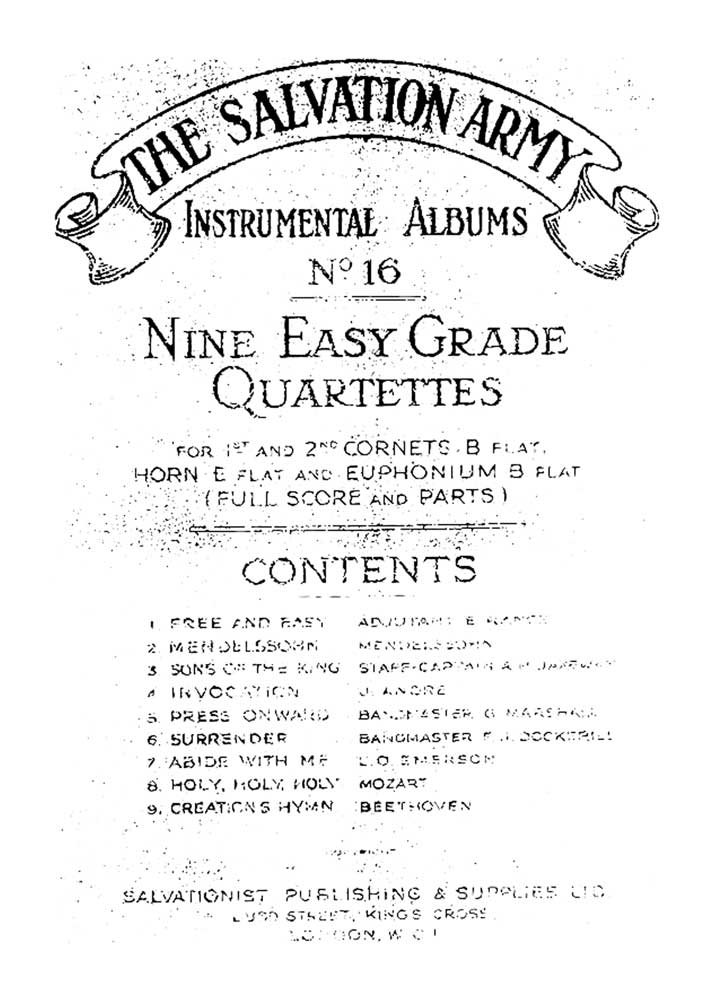 £14.95
£14.95Instrumental Album No.16 - Nine Easy Quartettes
Includes: Free and Easy; Mendelssohn's Songs; Sons of the King; Invocation; Press Onward; Surrender; Abide with Me; Holy, Holy, Holy; Creation's HymnInstrumentation: 2 Cornets, Eb Horn & Euphonium (Bb)
Estimated dispatch 7-14 working days
-
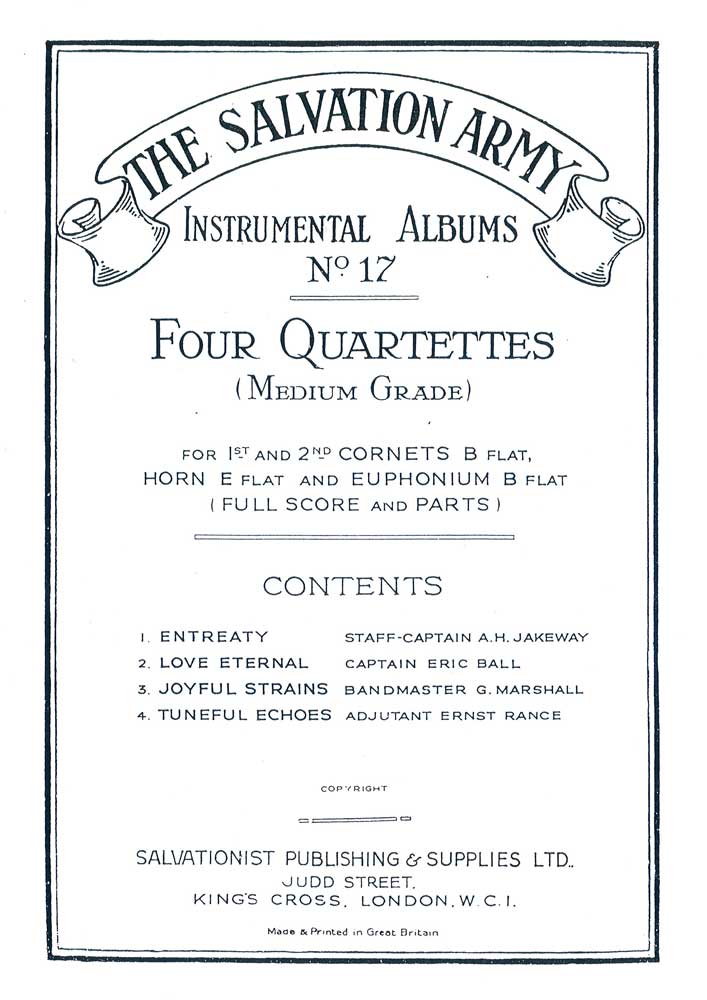 £14.95
£14.95Instrumental Album No.17 - Four Quartettes
Includes: Entreaty; Love Eternal; Joyful Strains; Tuneful EchoesInstrumentation: 2 Cornets, Eb Horn & Euphonium (Bb)
Estimated dispatch 7-14 working days
-
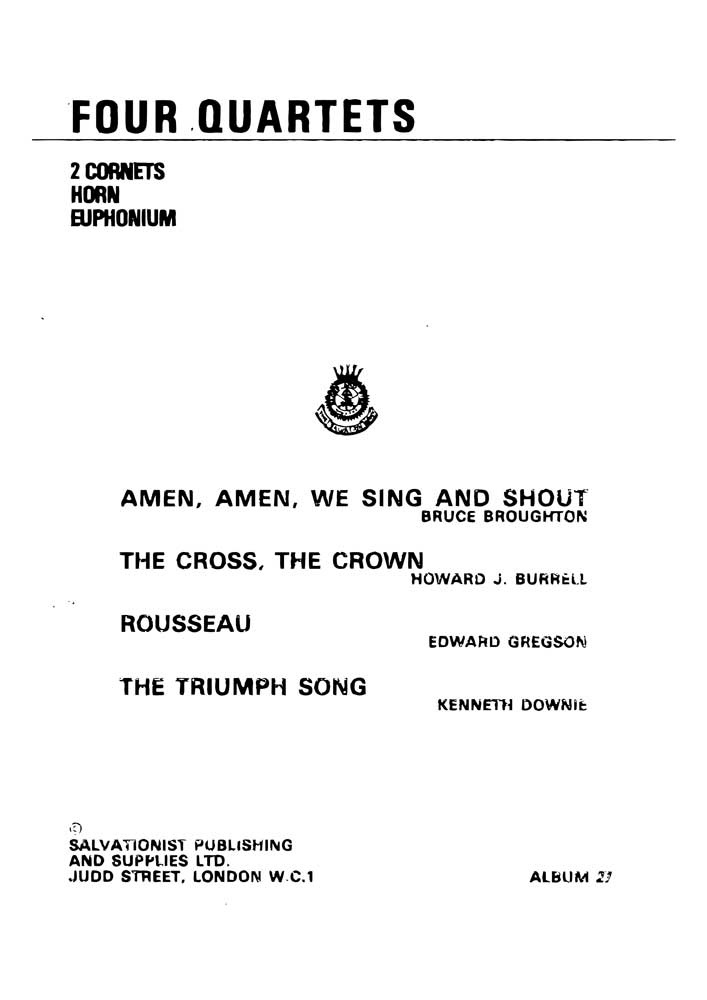 £14.95
£14.95Instrumental Album No.27 - Four Quartettes
Includes: Amen, Amen, we sing and shout; The cross, The crown; Rousseau; The triumph songInstrumentation: 2 Cornets, Eb Horn & Euphonium (TC)
Estimated dispatch 7-14 working days
-
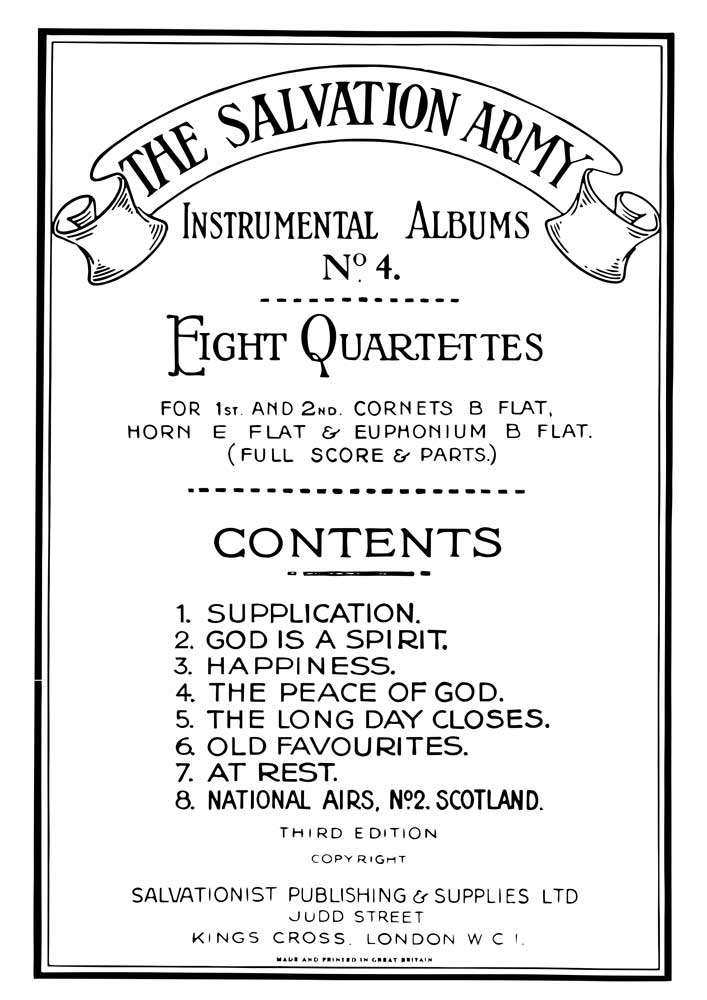 £14.95
£14.95Instrumental Album No.4 - Eight Quartettes
Includes: Supplication; God is a spirit; Happiness; The Peace of God; The long day closes; Old Favourites; At Rest; National Airs, No.2 - ScotlandInstrumentation: 2 Cornets, Eb Horn & Euphonium (Bb)
Estimated dispatch 7-14 working days
